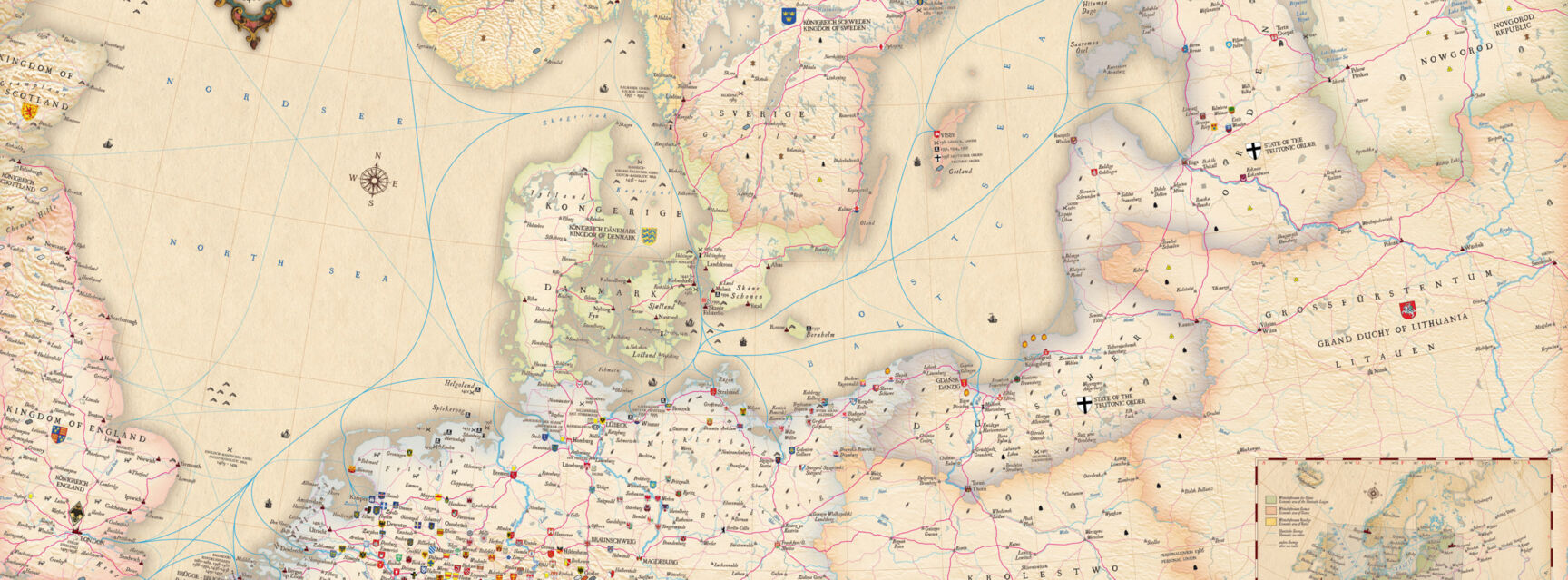Resolutions
The Hanseatic Days were usually held in Lübeck. The mayor of the host city chaired the proceedings. Resolutions had to be passed unanimously, which was very difficult with up to 50 participating cities with very different economic interests - not unlike today.
The representatives sent to the Hanseatic Day discussed all questions concerning the relationship between merchants and cities. On the agenda were also relations with trading partners abroad, diplomatic activities, the admission or expulsion of new members, or decisions on war and peace. The idea was that decisions should be binding on all members. However, if decisions were to be taken on problems that were not mentioned in the letter of invitation or were too detailed and complex, the matters had to be discussed beforehand with the councils and citizens' assemblies of the respective home towns. This made a resolution possible only at the next Hanseatic Day. This referral back to the home towns and the required unanimity made the decisions complicated and lengthy.
The resolutions of the Hanseatic Days, the so-called recesses, only became legally valid when they were proclaimed, i.e. read out, in the kontors and at the municipal assemblies of the individual cities. Anything that ran counter to the interests of the respective cities was omitted. Therefore, the chances of a recess achieving legal force in all Hanseatic cities were usually very small.
Despite these difficulties, the Hanseatic League had a strong influence on economic, trade and power politics in northern Europe for over 400 years from the mid-13th to the end of the 17th century.
The end and a new beginning
In July 1669, the last Hanseatic Day took place in Lübeck. Only six cities were present, three others were represented. Changed economic structures and the political lack of reliable power structures caused the Hanseatic League to fail. Even though the Hanseatic League was never formally dissolved, it no longer played a role in the centuries to come until the Union of Cities THE HANSA was re-established in 1980. Since then, Hanseatic Days have been held regularly again, each year in a different member city.

